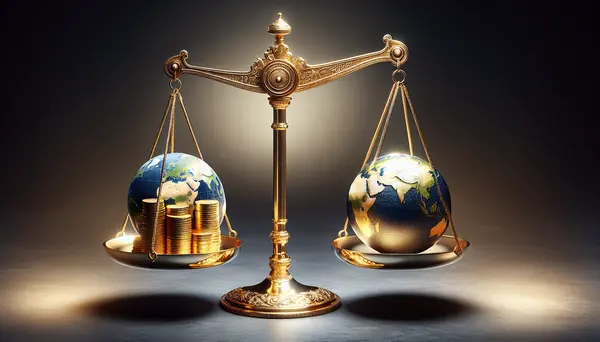Money Supply
Money Supply
Introduction to Money Supply
The term "Money Supply" denotes the total amount of monetary assets available in an economy at a specific point in time. It includes physical forms of money, like coins and notes, and non-physical forms, such as bank deposits.
Importance of Money Supply in Trading
Understanding the concept of Money Supply is pivotal to traders, whether novice or experienced. Traders watch Money Supply because changes impact markets. An increase leads to lower interest rates, potentially stimulating economic activity and, in turn, increasing share prices. A decrease, on the other hand, leads to higher interest rates, potentially slowing economic activity and reducing share prices.
Types of Money Supply: M0, M1, M2, M3
Money Supply isn't a uniform term. It has varying levels signified by M0, M1, M2, and M3. M0 refers to physical money, M1 to M0 plus checkable deposits, M2 takes into account all of M1 and adds savings accounts, small-denomination time deposits, and retail money market mutual fund shares. M3 adds large time deposits, institutional money market funds, short-term repurchase agreements, and other larger liquid assets to M2.
Determining Money Supply
Nations measure Money Supply differently, making worldwide comparisons a challenge. In the United States, the Federal Reserve is responsible for tracking the Money Supply statistics and uses it as a critical tool for implementing monetary policy.
Money Supply and Inflation
Excessive growth in Money Supply can lead to inflation. When more money is available, demand increases, prices rise, and the value of money falls. Understanding this connection helps traders anticipate market trends and make informed decisions.
Wrap Up
When it comes to financial trading, knowing and understanding what Money Supply is, and how changes can impact the markets, is crucial. It's one of the vital indicators that can help traders predict potential shifts, providing invaluable insight for their trading strategies.
Blog Posts with the term: Money Supply

Central Banks play a crucial role in managing a country's money supply and regulating the economy. Their policy decisions have a significant impact on financial markets, including interest rate changes, quantitative easing, and regulation, which can influence trading behavior and...


